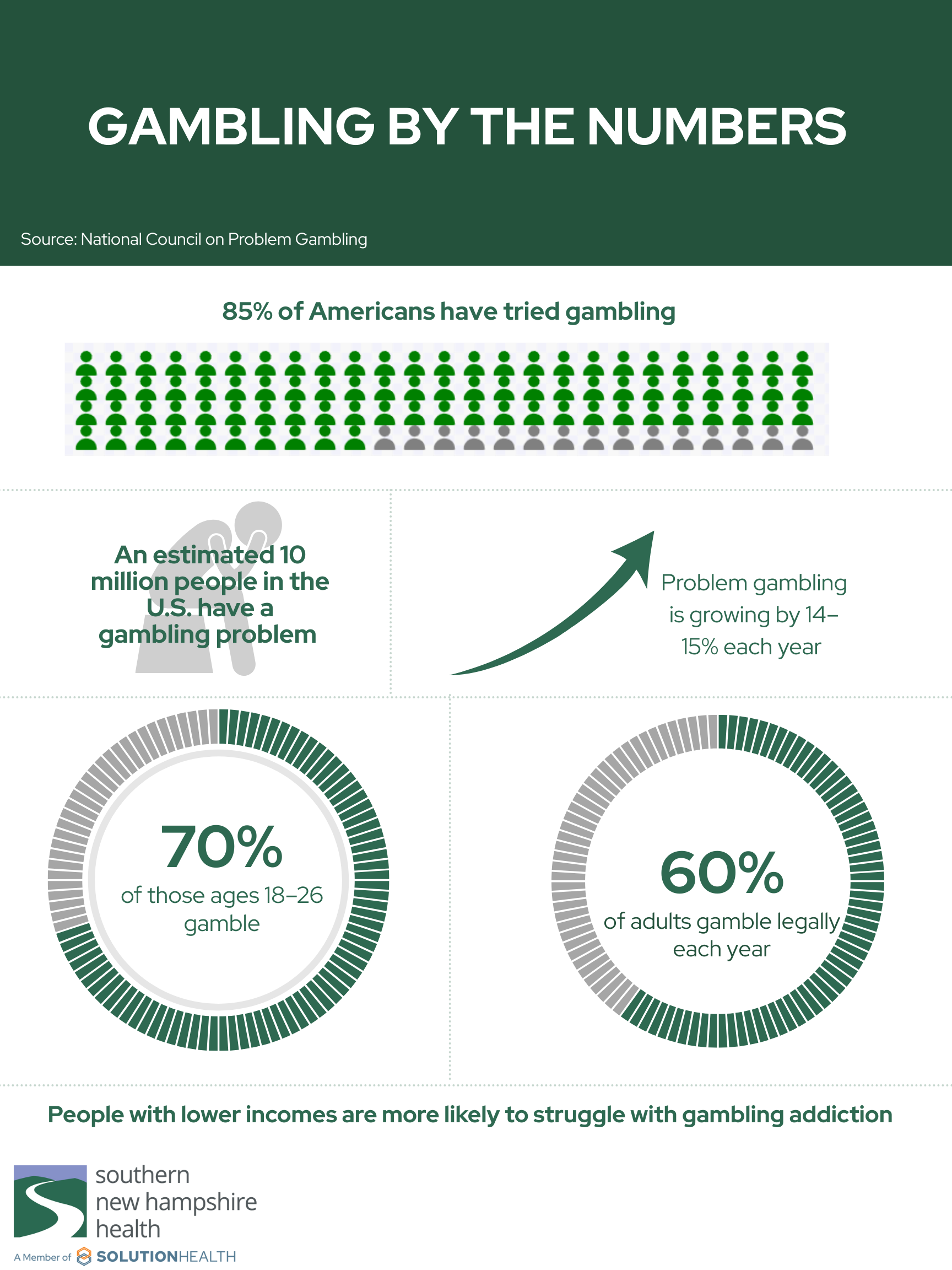April 16, 2025
From Scratch Tickets to Casinos: When Gambling Becomes a Problem
New casinos are opening in New Hampshire, and online gambling is now legal. That means more people than ever are able to bet from home, on their phone, or on their computer. While gambling can seem like harmless fun, for some, it becomes a serious problem.
What is a Gambling Addiction?
Problematic gambling is a real medical condition recognized by the American Medical Association and the American Psychiatric Association. Like addiction to drugs or alcohol, gambling can damage every part of a person’s life.
People struggling with this disorder often lose jobs, homes, cars, and even relationships. In some cases, gambling is linked to depression and suicide.
Why Gambling Becomes Addictive
The thrill of winning causes the brain to release dopamine, a chemical that makes us feel good. This “high” is also triggered by substances like alcohol or drugs. That’s why gambling can feel so rewarding, even when the losses add up.
Some people chase this high, betting more and more each time. They may try to win back money they’ve lost, gamble with credit cards, or lie to friends and family about how much they’ve spent.
Common Signs of a Gambling Problem
There are common signs of problematic gambling. You may:
- Spend a lot of time thinking about betting
- Feel anxious or upset when you try to stop
- Deny there’s a problem, even when your finances or relationships are falling apart
If you feel like gambling is taking over your life, it’s time to reach out for support.
Help for Problematic Gambling is Available
Mental health providers trained in gambling addiction can offer therapy, support groups, and sometimes medication to help. Talking to a professional is the most effective way to recover.
The National Council on Problem Gambling offers a free, confidential helpline.
Call 1-800-GAMBLER or visit ncpgambling.org.
(Note: This is not a crisis line. If you are in immediate danger or distress, call 911.)
 Dr. W.D. Charmak is a board-certified clinical psychologist and chair of Behavioral Health at Foundation Medical Partners.
Dr. W.D. Charmak is a board-certified clinical psychologist and chair of Behavioral Health at Foundation Medical Partners.

